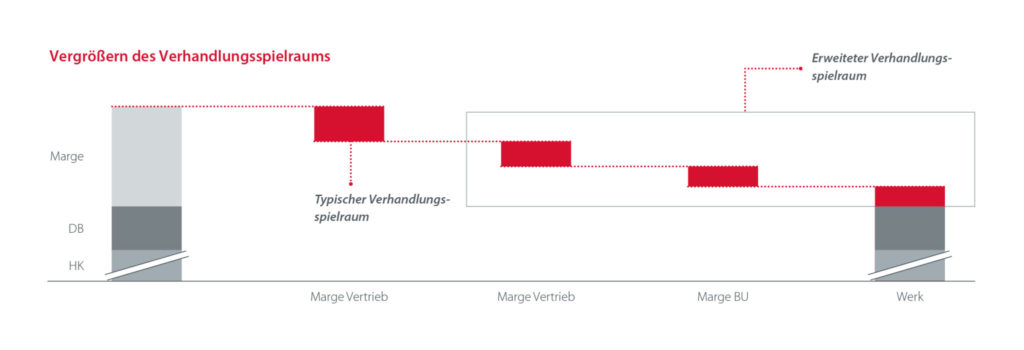Targeted creation of genuine competition
Both in project purchasing and in product group purchasing, the desired results often cannot be achieved by pure price negotiations. In many cases, however, the own purchasing department is left with hardly any choice but to quickly order from well-known suppliers at high prices. The reasons are manifold: Purchasing is integrated too late into the development process, specifications are finalized too late and are not written neutrally, but are tailored to the favorite supplier of engineering, the demand date for the component to be procured is so short-term that a professional negotiation becomes impossible, etc. The result is on the one hand, commercial in that the purchasing department is downgraded to a simple order department, which can rarely achieve more than 2 to 5% discount with quasi-set suppliers in price negotiations. On the other hand, existing technical solutions must be adhered to, due to the time pressure.
The purpose of competition is to reduce the cost base sustainably – through bilateral (customer – client, client – supplier) technical optimizations/avoided overspecification and through commercial negotiations. Commercially, it is important to use the typical bargaining power of the margins from sales, the business units and the supplier’s plants. Above-average price reductions, however, can only be achieved if credible genuine competition is created. This means that up to the point of awarding the contract, the suppliers must be left in uncertainty about the award decision, top performers must be questioned, and new suppliers must be requested. Competition thus places higher and new demands on the capacities and working methods of the organization: neutral inquiry specifications, standardized inquiries, early involvement of several suppliers per component, and awarding from a total cost-of-ownership point of view.
Increasing the scope for negotiation

Project outcomes
- Reduction of material costs by more than 20%
- Development of innovative technical and commercial measures to reduce costs
- Development of the supplier base
- Development of interdisciplinary work teams and development of team coaches


